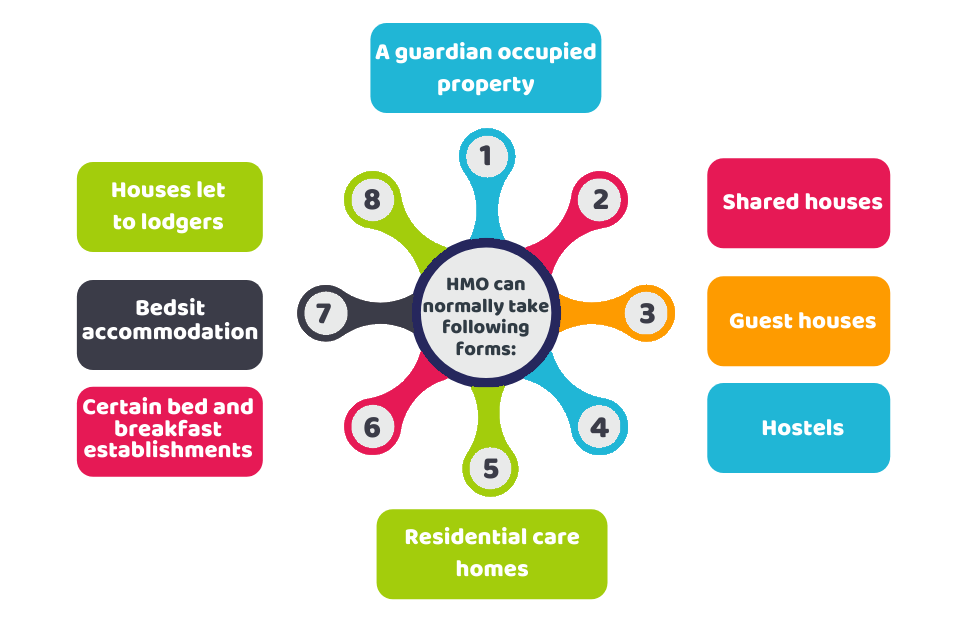
The landlords can have more occupants and earn more rental revenue by letting an HMO (House in Multiple Occupations). However, there are many rules and responsibilities like minimising size requirements, overcrowding, and licensing to HMO landlords. To know more about HMOs’ responsibilities, read this blog till the end.
Talk to one of our chartered accountants in Croydon about the online accountancy services we provide. We are just a click away! If you want our service of managing HMO and its tenants, then feel free to contact us!
What is HMO (House in Multiple Occupations)?
It is a property that has three or more people who do not form a single household and typically share one or more bathroom, toilet, or kitchen facilities. According to the government, the households include singles, married or civil partners (couples), and carers & foster parents.
For instance, three people who do not relate to each other in three rooms will make up three households, whereas a property with two couples (married or civil partners) will form two households.
HMO can normally take the following forms:

- A guardian occupied property
- Shared houses
- Guesthouses
- Hostels
- Residential care homes
- Certain bed and breakfast establishments
- Bedsit accommodation
- Houses let to lodgers
The Responsibilities for Letting an HMO
As a landlord, you are required to fulfill your legal liabilities even if you let an HMO. These legal responsibilities include meeting energy efficiency rules and protecting deposits.
However, the following are some additional responsibilities of the landlords of HMOs such as:
- Carrying out a gas safety check annually
- Ensuring the property is not overcrowded
- Maintaining as well as repairing facilities and communal areas
- Providing washing and cooking facilities and enough waste bins for many tenants in the property
- At least once every five years, checking the electrical installations
- Ensuring the fire risk assessment is conducted properly
- Installing heat detectors in kitchens and smoke alarms; hence, proper fire safety equipment should be installed.
Our accountants at CruseBurke are qualified and cost-effective! We save your time, money, and stress by handling all your finances and business problems in no time! So, allow us to do this at an affordable package!
Do You Require a License for an HMO?
Every license will identify the total number of individuals for the occupation of the property. Moreover, it will also identify the number of years it will be valid. For an HMO, you need a license when in the property there are:
- Two or more separate households living
- Five or more tenants living
Through your local council, you should apply for a license. The terms of the license will be set by the individual councils. You can ask your letting agent to apply for a license, or you can apply yourself.
When applying for a license, a landlord has to inform the following different parties, and the details of these parties must be pass on to the council.
- The occupants who have more than three years left on the current tenancy
- The lender in case you have a buy-to-let mortgage
- The freeholder of the property (if any)
- Any other owners of the property
Conclusion
We hope now you have understood what is HMO and what are the responsibilities of an HMO landlord. Finally, we will conclude our blog by saying that managing all your properties by yourself is complex. So, if you want to grow your property portfolio, we recommend you take help from a professional letting agent to manage your house of multiple occupants (HMO).
Are you looking for a professional letting agent? Then, look no other than CruseBurke. We are qualified, cost-effective accountants that will properly manage your HMO and its tenants at an affordable package! So, contact us right away!
Disclaimer: This blog contains general information on what is HMO.

